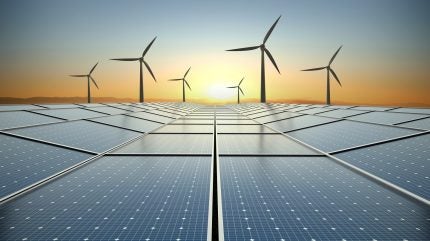
Shares of US solar energy companies have experienced a notable increase following the Trump administration’s announcement last Friday (15 August) on new subsidy rules for clean energy projects, which were less stringent than anticipated by investors.
Industry had raised concerns regarding the potential requirement for project developers to incur a significant percentage of project costs to qualify for the credits, as well as fears of a reduced timeline to claim the subsidies post-construction commencement.

Discover B2B Marketing That Performs
Combine business intelligence and editorial excellence to reach engaged professionals across 36 leading media platforms.
The Treasury Department has refined the definition of what constitutes a solar or wind project as being under construction, a prerequisite for eligibility for federal tax credits amounting to 30% of a project’s overall cost.
The updated guidelines mandate that developers of large solar arrays and wind farms must demonstrate physical work completion rather than merely showing capital investment.
While some solar companies expressed criticism of the changes, analysts, investors and other stakeholders indicated that the new guidelines were more favourable than many had expected.
Reuters reported that the MAC Global Solar Energy index rose by 4% with significant gains noted among leading companies. Residential solar company Sunrun saw an increase of 9%, while panel manufacturer First Solar experienced an 8.6% rise.

US Tariffs are shifting - will you react or anticipate?
Don’t let policy changes catch you off guard. Stay proactive with real-time data and expert analysis.
By GlobalDataThe Treasury Department maintained the existing four-year window for projects that commence construction before the credits expire.
The One Big Beautiful Bill Act, signed into law on 4 July 2025, stipulates that projects must begin construction by July of the following year or become operational by the end of 2027 to qualify for the 30% tax credit, along with potential bonuses that could enhance the subsidy further.
Under previous legislation, these credits were accessible until 2032.



